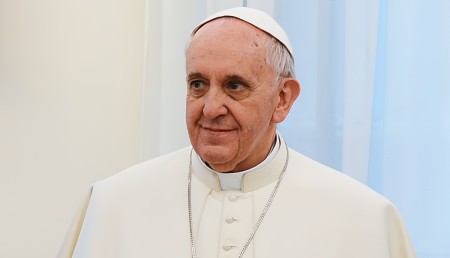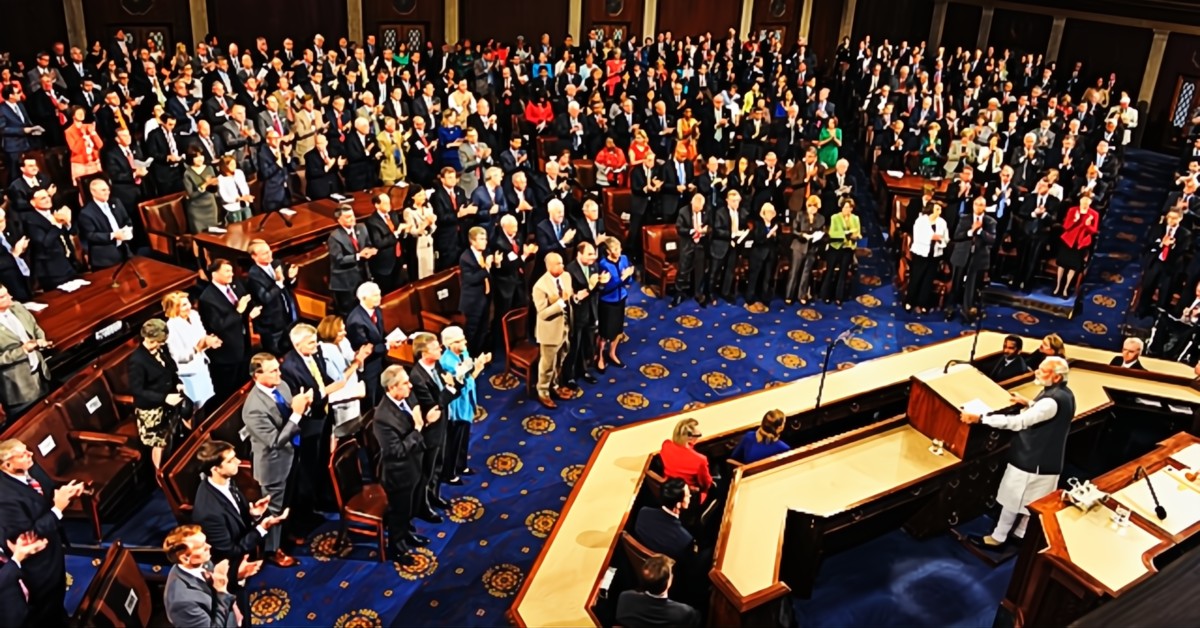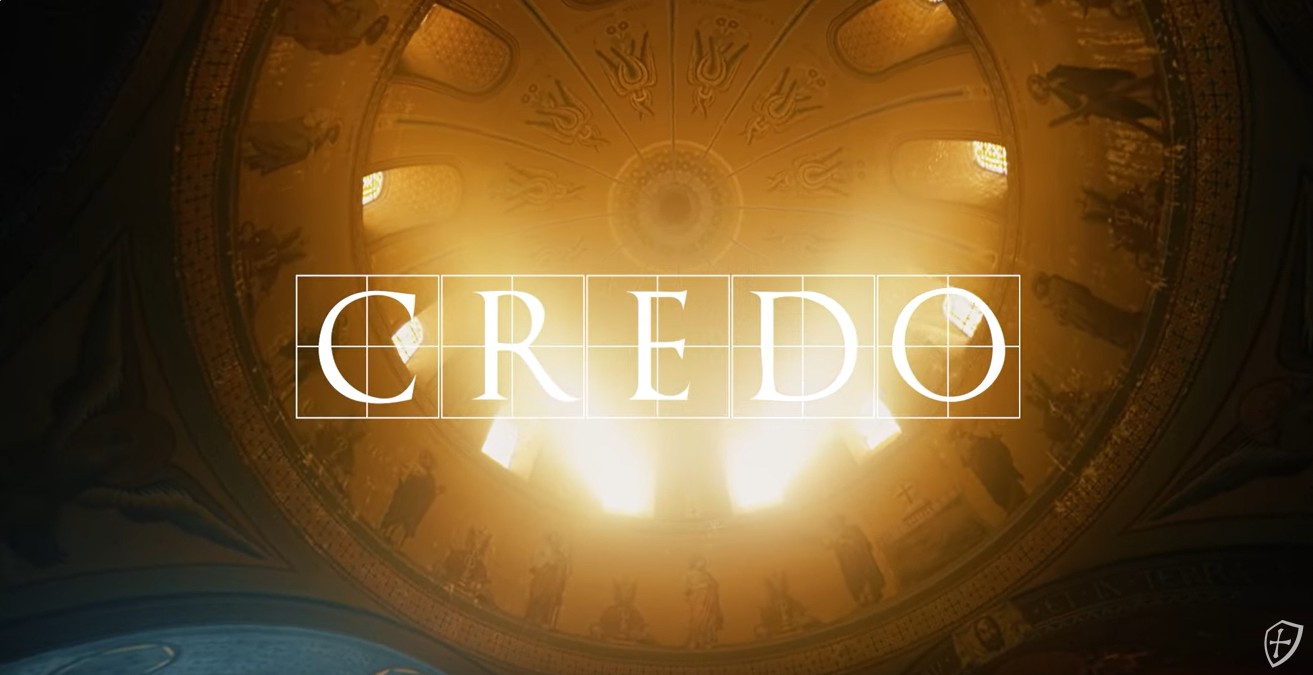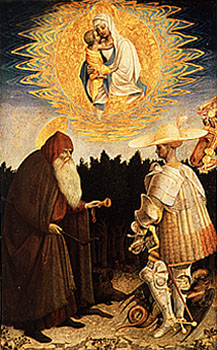We ask you, urgently: don’t scroll past this
Dear readers, Catholic Online was de-platformed by Shopify for our pro-life beliefs. They shut down our Catholic Online, Catholic Online School, Prayer Candles, and Catholic Online Learning Resources—essential faith tools serving over 1.4 million students and millions of families worldwide. Our founders, now in their 70's, just gave their entire life savings to protect this mission. But fewer than 2% of readers donate. If everyone gave just $5, the cost of a coffee, we could rebuild stronger and keep Catholic education free for all. Stand with us in faith. Thank you.Help Now >
Church Using Internet and Social Networks for Mission
FREE Catholic Classes
Let us embrace the Internet with faith, enthusiasm, and wisdom, as we live our shared vocation in the cyber-age.
Highlights
Zenit News Agency (www.zenit.org)
11/4/2008 (1 decade ago)
Published in Europe
ROME (Zenit) - During the synod of bishops it was suggested that Benedict XVI set up a blog to communicate online. It's an indication of how important the Internet is today when it comes to evangelization.Just after that came the news that Naples Archbishop Crescenzio Sepe had set up a profile on the social networking site Facebook, the Italian news agency ANSA reported Oct. 28.
''I'm getting 200 new friends every day,'' the cardinal said. ''You have to go where the people are and if the people are on Facebook you go there too." Cardinal Sepe's observation about needing to go where young people are is backed up by data from a United States survey. In the group of young people born after 1984, only about 33% attend church on a typical weekend.
The information came from a 2006 survey by the Barna Research Group, cited in an article published by the New York Times on October 26. The article looked at how churches are using a variety of media techniques to appeal to young people. By comparison, 49% of baby boomers are likely to go to church on weekends.
The New York Times mentioned that some preachers are incorporating multimedia resources in their services or preaching, ranging from film clips, modern music and PowerPoint presentations.
Networking
Churches have also created profiles on social networking sites such as Facebook or MySpace, as well as on Christian networking sites. Many churches now also have their own Internet pages, with video clips, podcasts and blogs.
One such church was examined in an April 9 article published by USA Today. The Rev. Bruce Walker preaches to a congregation of fewer than 100 people in Greenville, South Carolina, but his sermons are available via a podcast to people all over the world.
A savvy move, as according to the article a survey last year by the Pew Internet & American Life Project found that more people used the Internet to look for religious and spiritual information than to download music, participate in online auctions or visit adult Web sites.
Walker uploads his recordings to a company called SermonAudio.com. More than 1 million sermons are accessed each month from the site, according to USA Today.
It's not only sermons that are online. In Ireland one of the countries most popular novenas, held each year by the Redemptorists at their Mount St. Alphonsus monastery in Limerick, was streamed live for the first time this year.
The Web site, www.novena.ie, allowed the church to be viewed through a webcam 24 hours a day, reported CatholicIreland.net, on June 12.A similar initiative last year for a novena at another Redemptorist Church, the Clonard monastery in Belfast, recorded over 50,000 visitors.Another Irish community, the Augustinian Church in Cork, started this year to broadcast a novena, reported CatholicIreland.net on April 20.
Video online
Last year the church, which is the center of the Polish community in Cork, started to stream Masses and other ceremonies over the Internet. "I heard about one woman in Poland who was delighted to see her husband at the ten o'clock Mass at Christmas, going up to receive communion," said Father Pat Moran."We have had over 18,000 visitors from 32 countries since it began," Father Pat Moran told the news agency.
Video clips are a popular way of communicating on the Internet and GodTube, the religious alternative to YouTube, received a big investment earlier this year. A London-based hedge fund, GLG Partners, announced it was investing almost $30 million in GodTube, reported the British newspaper, the Guardian on May 13.
At the time the article was published since its launch in August last year GodTube has uploaded more than 100,000 videos, all with an overt religious theme. About 40 workers are employed in order to vet each video before it is posted.GodTube also streams live sermons, and has a "prayer wall," where users post their petitions.
Sending prayers through the Web is popular, and earlier this year a site to send prayers to God was set up by Bill Tikos, based in Sydney, Australia, reported a local paper, the Sydney Morning Herald, April 20.In the first week after the site, Dear-god.net, was launched, more than 63,000 people visited and hundreds commented on people's prayers.
Evangelization
The possibilities of the Internet as a tool for evangelization were examined in an article published June 21 on the site InsideCatholic.com.Jennifer Fulwiler described her conversion from atheism to Catholicism and argued that the Internet will allow people to discover the truth about religion much more readily than any other medium.
Her own conversion came about as a result of following up some minor curiosities by searching on the Web for information about some philosophical questions. It was the interactivity of the Internet that started to undermine her atheism.
The comments on material published and the online debates opened Fulwiler to Christian views: "I thought I had some good questions for Christians, and I did. But it turned out that they had some good questions for me, too."
The openness and quick response times on the Internet are also features Fulwiler said will benefit religion. "The power of the elite to control information is gone," she noted. "This means more ideas, more questions, and more rapid answers that are more finely tailored to each person's individual concerns."
Dangers and opportunities
The Internet, however, is a mix of opportunities and dangers. This was recognized in a letter published by Australia's Catholic bishops, dated April 27. The bishops issued a pastoral letter on Internet Safety, accompanied by a video posted on YouTube.
The letter itself is directed primarily to parents, grandparents and teachers within the Church community, while the YouTube video talks directly to young people about safety on the Net.
Thanks to the Internet, the letter noted, the message of Jesus Christ is conveyed to people around the world in ways that the first evangelists could not even dream of. The text warned, however, that we all have to carefully discern what we read and encounter on the Web.
Citing a number of texts from both Pope John Paul II and Benedict XVI the letter observed that the Church viewed positively the opportunities for evangelization available through the Internet.
Nevertheless, while it offers an enormous range of information it can also disregard values and can degrade human dignity. There is also a great need to protect children and families from the dangerous and destructive content available.
"As Christians, we are called to share the Good News of Jesus Christ with all," the bishops commented. "Let us embrace the Internet with faith, enthusiasm, and wisdom, as we live our shared vocation in the cyber-age."
This enthusiasm for the Internet's possibilities is shared by the Vatican. In September, Archbishop Claudio Celli, president of the Pontifical Council for Social Communications, announced the 2009 theme for World Day of Social Communications: "New Technologies, New Relationships. Promoting a Culture of Respect, Dialogue and Friendship."
"Progress in means does not simply imply a step forward, but always brings new conditions and possibilities that humanity can use and invest for the common good and make into the basis for ample and widespread cultural growth," he explained.
Archbishop Celli also announced that a bishops' meeting is scheduled for March, to bring together prelates responsible for communication and media experts. Faith 2.0 is getting off to a flying start in the Third Millennium.
Join the Movement
When you sign up below, you don't just join an email list - you're joining an entire movement for Free world class Catholic education.

-

-
Mysteries of the Rosary
-
St. Faustina Kowalska
-
Litany of the Blessed Virgin Mary
-
Saint of the Day for Wednesday, Oct 4th, 2023
-
Popular Saints
-
St. Francis of Assisi
-
Bible
-
Female / Women Saints
-
7 Morning Prayers you need to get your day started with God
-
Litany of the Blessed Virgin Mary
Pope Francis Suffers Fall: A Look at Papal Health and Succession
-

The Erosion of Civility in Congressional Hearings: A Call for Professional Decorum
-

Bishop Strickland and Others Defend Apostolic Tradition in New Documentary on the Church's Enduring ...
-
At Least 25 Dead as Wildfires Continue to Rage Across Los Angeles, Arson Investigations Underway
-
Australian Woman Charged with Torture After Exploiting Child for Donations
Daily Catholic
 Daily Readings for Friday, January 17, 2025
Daily Readings for Friday, January 17, 2025 St. Anthony the Abbot: Saint of the Day for Friday, January 17, 2025
St. Anthony the Abbot: Saint of the Day for Friday, January 17, 2025 Prayer for a Blessing on the New Year: Prayer of the Day for Tuesday, December 31, 2024
Prayer for a Blessing on the New Year: Prayer of the Day for Tuesday, December 31, 2024- Daily Readings for Thursday, January 16, 2025
- St. Fursey: Saint of the Day for Thursday, January 16, 2025
- St. Theresa of the Child Jesus: Prayer of the Day for Monday, December 30, 2024
![]()
Copyright 2024 Catholic Online. All materials contained on this site, whether written, audible or visual are the exclusive property of Catholic Online and are protected under U.S. and International copyright laws, © Copyright 2024 Catholic Online. Any unauthorized use, without prior written consent of Catholic Online is strictly forbidden and prohibited.
Catholic Online is a Project of Your Catholic Voice Foundation, a Not-for-Profit Corporation. Your Catholic Voice Foundation has been granted a recognition of tax exemption under Section 501(c)(3) of the Internal Revenue Code. Federal Tax Identification Number: 81-0596847. Your gift is tax-deductible as allowed by law.







 Daily Readings for Friday, January 17, 2025
Daily Readings for Friday, January 17, 2025 St. Anthony the Abbot: Saint of the Day for Friday, January 17, 2025
St. Anthony the Abbot: Saint of the Day for Friday, January 17, 2025 Prayer for a Blessing on the New Year: Prayer of the Day for Tuesday, December 31, 2024
Prayer for a Blessing on the New Year: Prayer of the Day for Tuesday, December 31, 2024

